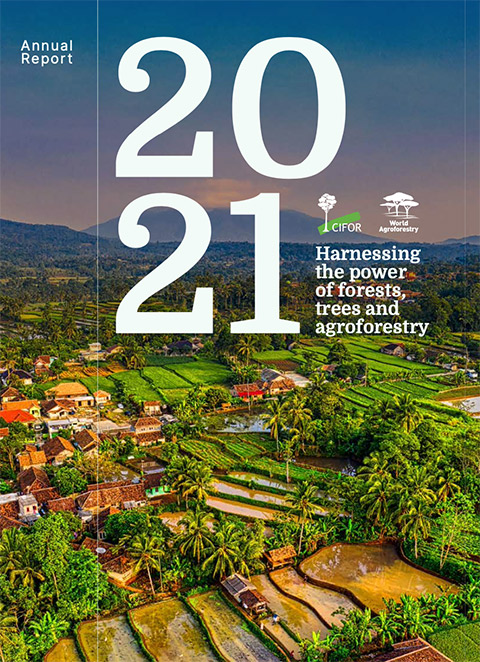Gather a group of strangers around a table for a board game, and you have a great ice-breaker. But when that game is based on science and the players include smallholders, villagers, local government and private companies, it can be a tool for transformation.
The six-year Oil Palm Adaptive Landscape (OPAL) project aimed to improve the management of oil palm landscapes in Cameroon, Colombia and Indonesia – which together account for 59.4% of global palm oil production – by opening up lines of communication between industry stakeholders.
In each country, researchers and stakeholders developed a board game tailored to address context-specific issues such as supply chain problems. Role playing drew not only laughs but also insights, as each player took on a role that was polar opposite to real life.
“The head of a plantation or a local government official typically plays a smallholder farmer struggling to get a legal permit or a fair price for fresh fruit bunches,” said Heru Komarudin, a CIFOR-ICRAF researcher and policy analyst whose portfolio includes OPAL. “This shift in perspective and the friendly atmosphere allowed people to speak freely even when discussing sensitive issues.”
As a result, small-scale producers and agro-businesses became more aware of each other’s needs, and government officials gained a better sense of the nuances on the ground.
While the impacts of such exercises are difficult to quantify, there are signs of progress. In Cameroon, discussions around a national strategy for sustainable palm oil resumed after several years on hold.
In Indonesia, CIFOR-ICRAF collaborator Arya Hadi Dharmawan coordinated a group of IPB University scholars who became involved in key national processes to contribute to the development of policies on smallholder–private sector partnerships and the Indonesian Sustainability Palm Oil certification system.
And in Colombia, John Garcia of ETH Zurich said, “multiple stakeholders became aware of the considerable scope for expanding oil palm in a sustainable way, minimizing adverse impacts on carbon, water consumption, local climate and biodiversity.”
Supported by Swiss Agency for Development and Cooperation (SDC), Swiss National Science Foundation (SNSF), Swiss Programme for Research on Global Issues for Development and the Luc Hoffman Institute
Read
On the road to sustainable palm oil production in Cameroon Gaming Indonesia’s next move Navigating conflicts in La Cuenca“This shift in perspective and the friendly atmosphere allowed people to speak freely even when discussing sensitive issues.”
Heru Komarudin
CIFOR-ICRAF Researcher and Policy Analyst

